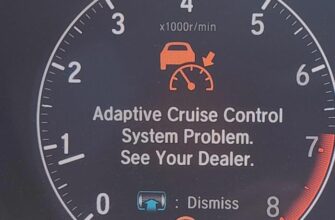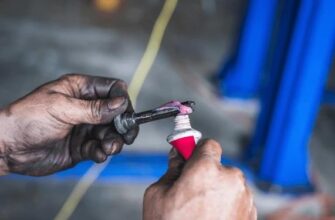Picture this: You’re driving down the road, and suddenly, you hear that dreaded crack! A rock flies up, hitting your windshield dead center, leaving behind a chip or a spiderweb crack. Your immediate concern, beyond the damage itself, is likely, “how do I know if my insurance covers windshield replacement?” Will filing a claim be a smooth process, or will it hit your wallet harder than that rock hit your glass?
It’s a common situation, and understanding your auto insurance policy before something like this happens can save you stress and surprises. Windshield damage, whether it’s a small chip or a crack that requires full replacement, falls under a specific part of your car insurance coverage.
Let’s break down how to determine if your windshield is covered, what to expect with deductibles, and how filing a glass claim might (or might not) affect your premium.

How Do I Know If My Windshield Is Covered in My Insurance?
The key to knowing if your windshield damage is covered lies in your comprehensive insurance coverage. While liability coverage pays for damage you cause to others, and collision coverage handles damage to your vehicle from accidents involving other vehicles or objects, comprehensive coverage steps in to cover damage from events like theft, vandalism, fire, natural disasters, and—critically—damage from falling objects or striking an animal. A rock hitting your windshield typically falls under this category.
So, to find out if your windshield is covered, you need to check if you have comprehensive coverage as part of your auto insurance policy.
Here’s how you can usually confirm your coverage:
- Review Your Policy Documents: The easiest way is to look at your insurance policy declarations page. This document outlines the types of coverage you have, your coverage limits, and your deductibles. Look for “Comprehensive” coverage listed.
- Check Your Online Account or Mobile App: Most insurance companies provide access to your policy details through their website or mobile app. Log in and navigate to your policy documents or coverage summary. This is a convenient way to determine your coverage details online.
- Contact Your Insurance Agent or Company: If you can’t find your documents or are unsure, call your insurance agent or the company directly. They can quickly tell you if you have comprehensive coverage and explain your glass coverage specifics.
Most drivers who want protection against things like windshield damage opt for comprehensive coverage. Therefore, the answer to “do most insurances cover windshield replacement?” is generally yes, if you have chosen to include comprehensive coverage in your policy. It’s not automatically included with basic liability insurance.
Do You Have to Pay Full Deductible for Windshield Replacement?
This is where it gets a little more nuanced. In many cases, yes, you will have to pay your comprehensive deductible when you file a claim for windshield replacement. Your deductible is the amount you agree to pay out-of-pocket before your insurance coverage kicks in. If you have a $500 comprehensive deductible and the windshield replacement costs $800, you would pay $500, and the insurance company would pay the remaining $300.
However, there’s an important exception: Zero Deductible Glass Coverage. Many insurance companies offer the option to add specific glass coverage to your policy, often with a $0 or very low deductible ($50-$100) specifically for windshield repair or replacement. This is an add-on to your comprehensive coverage. If you have this specific glass coverage endorsement, you would pay little to nothing for the windshield service.
Also, some states have no deductible for windshield replacement. In certain states (like Florida, Kentucky, South Carolina, and a few others), state law mandates that if you have comprehensive coverage, your insurer must waive the deductible for windshield repair or replacement. If you live in one of these states, your windshield replacement could effectively be free through your insurance, even without a special glass endorsement.
It’s crucial to check both your policy documents for a specific glass endorsement and be aware of your state’s insurance laws regarding glass coverage.
“I cracked my windshield last month and wasn’t sure if I’d have to pay my full deductible. Lisa, 41, I called my insurance company, and they told me that because I live in a state with a mandatory zero deductible for glass, the replacement was completely covered with no out-of-pocket cost for me.” – A driver benefiting from state-specific glass laws.

Will Filing a Windshield Claim Increase Your Insurance Rate?
A common concern when considering using your insurance is, “will my insurance go up if I claim for a windshield?” The good news here is that filing a comprehensive claim, such as for windshield damage, is less likely to cause a significant premium increase compared to filing an at-fault collision claim.
In most cases, comprehensive claims are viewed differently because they are typically for events outside of your control (like a rock chip or weather damage), not related to your driving behavior. Many insurers do not penalize drivers with a rate increase for their first comprehensive claim.
However, there are still nuances:
- Frequency: Filing multiple comprehensive claims in a short period could potentially lead to a rate review or increase, as it might suggest a higher risk profile (e.g., living in an area prone to hail or vandalism).
- Insurer Practices: While general principles apply, specific insurance companies (like State Farm, Allstate, GEICO, Progressive, etc.) have their own underwriting rules, which can vary slightly. However, the general consensus is that a standalone comprehensive glass claim has minimal to no impact on your premium for most drivers.
- State Laws: Some states may have regulations limiting or prohibiting rate increases for comprehensive claims.
Unless you have a history of multiple comprehensive claims, filing a single claim for windshield replacement is unlikely to cause a significant, if any, hike in your premium. This is one type of claim where the fear of a rate increase should usually not prevent you from using your coverage if the repair cost is well above your deductible. Sometimes, preventing further damage to your car by fixing something promptly, like repairing a windshield chip before it spreads into a large crack, is the smart financial move in the long run, potentially avoiding bigger issues down the road.
Getting Your Windshield Fixed Through Insurance
If you determine your windshield is covered and decide to file a claim, the process is usually straightforward:
- Contact Your Insurer: Report the damage as soon as possible. You can usually do this by phone, online, or through their app.
- Schedule Repair or Replacement: Your insurer will typically work with a network of approved glass repair shops. They can help you schedule an appointment, either at a shop or with a mobile glass service that comes to you. You usually have the right to choose your repair shop, but using the insurer’s network can sometimes simplify the process and billing.
- Pay Deductible (If Applicable): If a deductible applies to your glass coverage, you will pay this amount directly to the glass repair company. The insurance company will handle the rest of the payment to the shop.
For smaller chips, repair might be an option, which is often less expensive than replacement and sometimes has a lower or no deductible even if a replacement would have one. Your insurance company and the glass shop can advise if your damage is repairable.
Frequently Asked Questions (FAQ)
Q: How do I know if my insurance covers windshield replacement?
A: Check your auto insurance policy declarations page for “Comprehensive Coverage.” If you have it, windshield damage (from non-collision events like rocks) is typically covered.
Q: Do most insurances cover windshield replacement?
A: Yes, most auto insurance policies cover windshield replacement if you have comprehensive coverage. Basic liability-only policies usually do not.
Q: Do you have to pay full deductible for windshield replacement?
A: It depends on your policy and state law. You typically pay your comprehensive deductible, unless you have purchased a separate zero or low deductible glass coverage endorsement, or you live in a state that mandates a waived deductible for glass replacement.
Q: What states have no deductible for windshield replacement?
A: Several states have laws requiring insurers to waive the comprehensive deductible for windshield repair or replacement if you carry comprehensive coverage. Examples include Florida, Kentucky, and South Carolina. It’s important to check the specific laws in your state.
Q: Will my insurance rate increase if I file a windshield claim?
A: A standalone comprehensive claim for windshield damage is unlikely to cause a significant increase in your premium, as it’s usually considered an incident outside of your control.
Conclusion
A damaged windshield is an unwelcome event, but figuring out the insurance aspect doesn’t have to be complicated. Knowing how do I know if my insurance covers windshield replacement starts with confirming you have comprehensive coverage on your policy. While in many cases you have to pay your full deductible for windshield replacement, options like specific zero-deductible glass coverage or living in one of the states that have no deductible for windshield replacement can mean little to no out-of-pocket cost. The good news is that filing a claim for glass damage is generally considered a comprehensive claim and is less likely to make your insurance go up significantly compared to an at-fault accident. By understanding your policy and knowing what coverage you have, you can navigate the process smoothly and get your windshield fixed safely.








